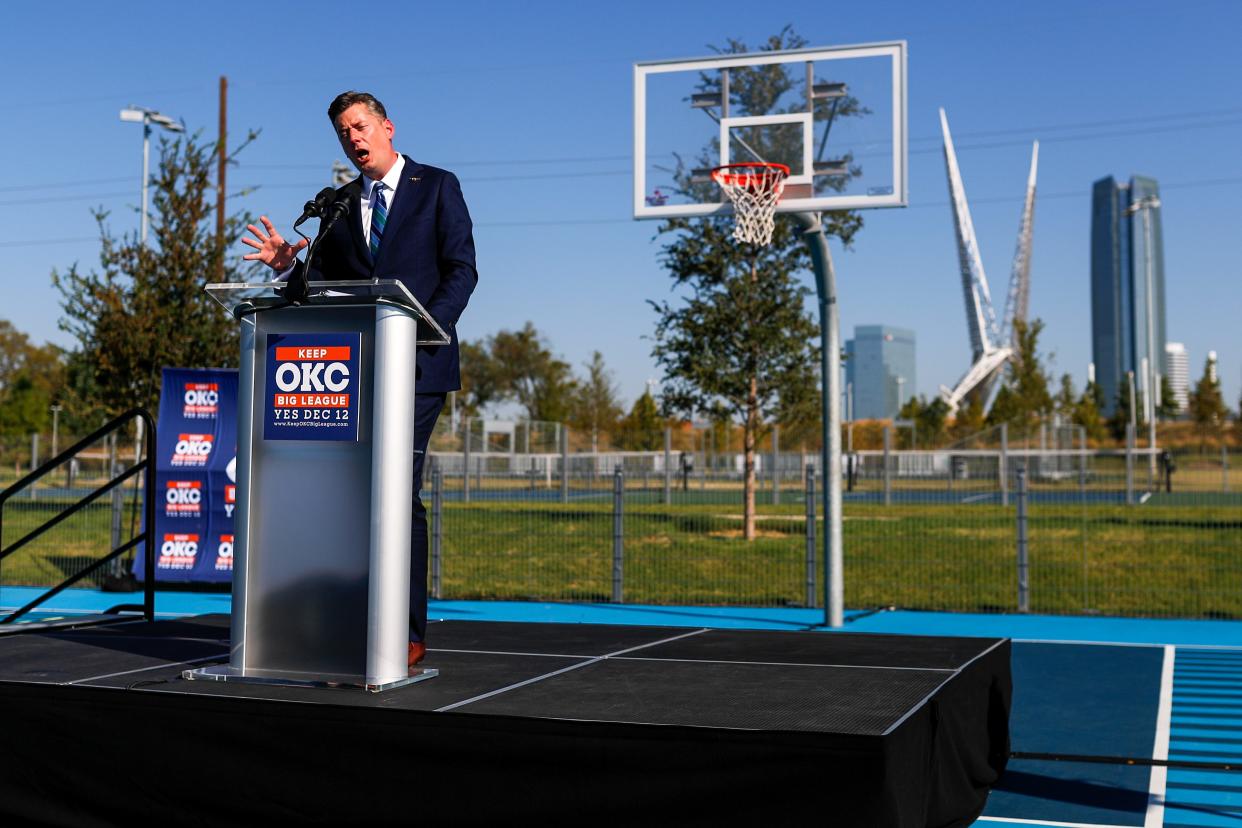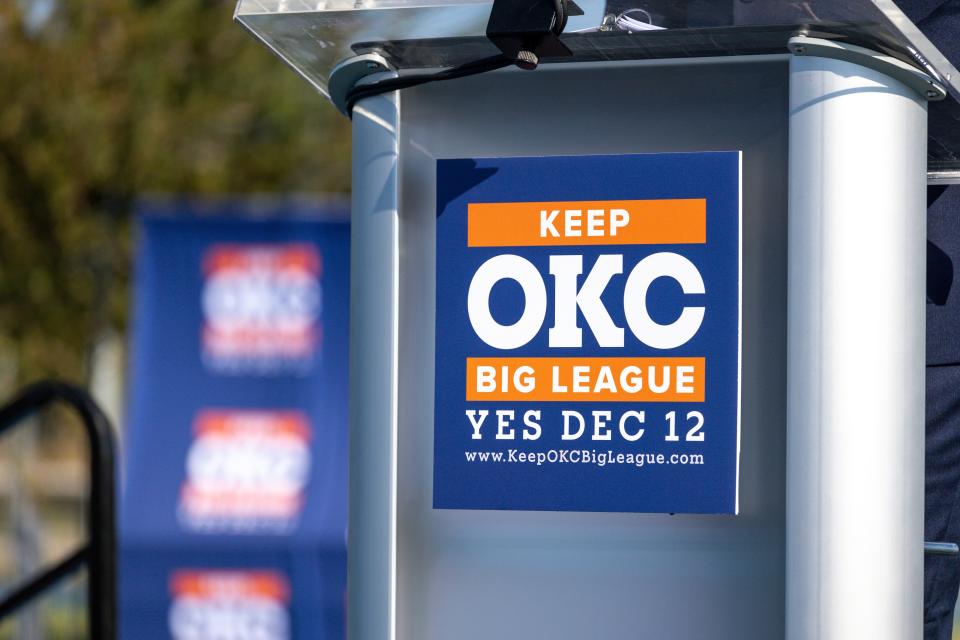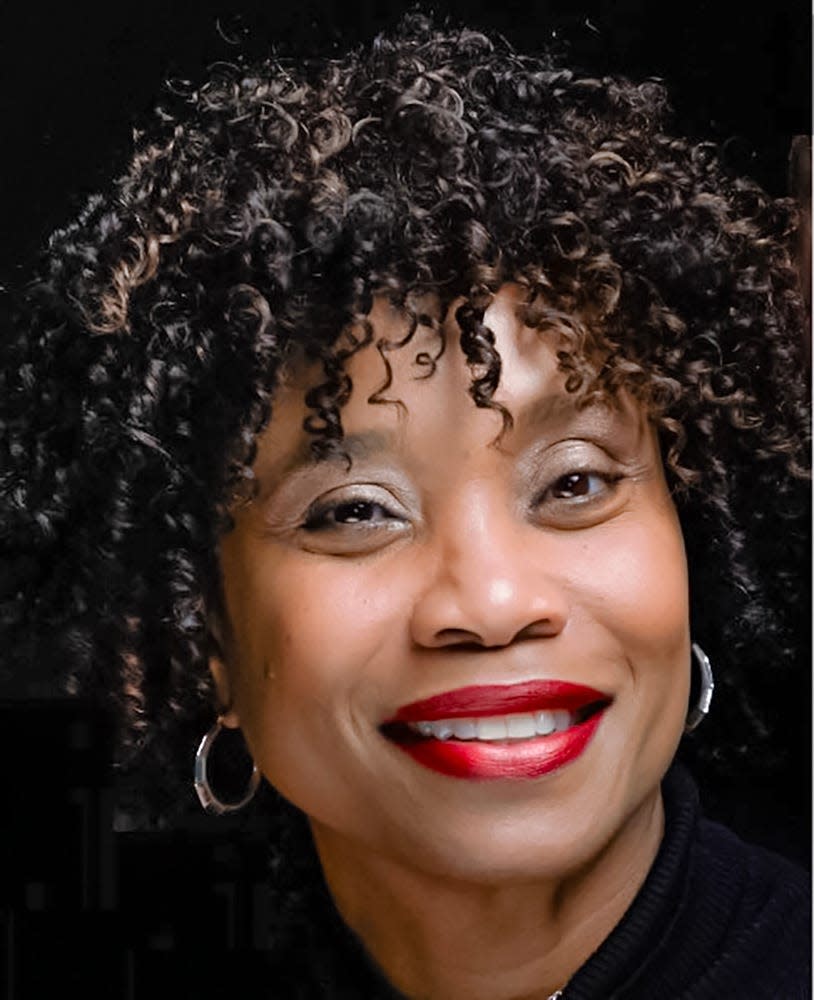Editorial: Why we support building a new arena in Oklahoma City

We’ve seen much commentary in recent weeks about Oklahoma City Mayor David Holt’s proposal for an estimated $900 million arena to accommodate the OKC Thunder through 2050.
Those who oppose the proposal believe it's not a fiscally sound plan for the city, that the $50 million the Thunder owners are contributing to the project is insignificant ― “insulting,” as one reader suggests. They believe taxpayers should not shoulder the remaining $850 million.
And they're not alone. At least three economists say they're not sure the city is getting the better end of the arena deal. One economist said, "It’s more of a social and cultural benefit than it is an economic benefit," that "arenas and stadiums are not engines for economic development."
What's wrong with social and cultural benefits? Nothing but net, a net gain on the quality of life in Oklahoma City.
More: OKC officials say a new Thunder arena is worth every penny. Economists aren't sold.
It seems opponents' objection is not so much against a new arena but the taxpayer burden. Concerns about spending nearly $1 billion on a building while ordinary people in the city go hungry and unhoused, and while some question whether there’s adequate funding for public services, are not without merit. Oklahoma City taxpayers' $301 million investment in the current arena also could be considered fiscal waste if the building ends up mothballed or demolished.
In the era of taxpayer-funded growth, they’ve seen projects that didn’t live up to promised potential. About $135 million was spent to build the streetcar system. While the streetcars have amped up the hip vibe of the city, average daily ridership in August totaled 667. (Each of the seven streetcars seat about 104 people.) The original MAPS investments launched the Oklahoma Spirit trolley shuttle service. Thirteen years later, the clangs of trolley bells were silent after the manufacturer no longer built the shuttles. And the Devon River Cruises, operated with city money and funded by Devon Energy and a federal grant, cruise the river rarely full eight months in the year. Average daily ridership on three river cruisers totaled 24 in August. Now taxpayers are being asked to fund a venture owned by wealthy residents, who opponents of a new arena believe are not paying their fair share. Understandably, some will object.
But the return on investment in a new arena is more nuanced than in dollars and cents. Providing a home for an NBA team is bigger than its owners and is certain to bring in more tax revenue than projects that previously underperformed. It means everyday residents are taking ownership in a quality of life they deserve. The OKC Thunder, and the Hornets before them, gave this city a taste of what it’s like to be in the big leagues. No one wants to return to a pre-NBA city, which was just emerging from being a tired, flyover town in the midst of reviving itself, thanks to the MAPS investments.

Arguably, the downtown landscape has changed in part because of events at the arena. Hotels were built and restaurants are thriving. The boost didn't come only from concertgoers and events on the Oklahoma River. Spending by Thunder fans is a significant part of the growth incentive.
The Thunder also ushered in a period of persisting community pride, and not only among city residents. Rural residents travel to the city for games, some with season tickets. Some even overnight in the city, like the Altus cotton farmer and his wife who leased an apartment so they could have somewhere to stay. That kind of pride doesn't come with a price tag, but with a commitment from investing in ourselves. It's the kind of pride that helped the city overcome the aura of the Oklahoma City bombing.
The Oklahoman supports building a new arena because of its potential to spur wider growth. Our support comes with calls for the city’s commitment to bring other developments around the Thunder’s new home so people can work, shop and play downtown, every day and every evening, even when the team does not have a home game. The new location could become a destination for mid- and high-end shopping experiences within walking distance from the arena, bringing new energy to a different part of downtown Oklahoma City.
A city’s true greatness is reflected in how it cares for its people ― all of its people. We implore city leaders and officials to not leave any community behind as Oklahoma City continues its transformation. While millions have been spent around the medical complex, downtown and along the Oklahoma River, there are still communities near these areas that look like a land that time has forgotten. The investment booms have not trickled down to people who most need a boost.
Councilperson James Cooper’s idea to fold in community benefits is smart. With construction of the new arena and after it opens, recruit workers from underserved communities. Train them if necessary. Pay them a livable wage so they get a shot at improving their standard of living. Invest some of the sales tax revenue directly in those communities.
We are confident this city is on a growth trajectory and can support inclusive and transparent practices in the process. Bring everyone along in its transformation. A new arena is a social and cultural investment we're willing to risk.

Clytie Bunyan is managing editor for diversity, community engagement & opinion.
This article originally appeared on Oklahoman: The Oklahoman supports building a new OKC Thunder arena

